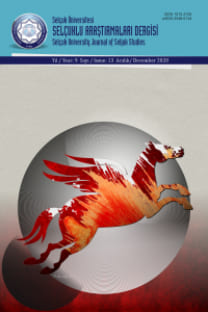IV. HAÇLI SEFERİNİN BALKANLARIN ETNİK YAPISINA ETKİLERİ
IV. Haçlı Seferi sırasında İstanbul’u ele geçiren Latinler, 57 yıl boyunca şehri işgal altında tutarlar. Bu sırada Trabzon, İznik ve Epir olmak üzere üçe bölünen Bizans yönetimi, Balkanlar üzerindeki hâkimiyetini tamamen kaybeder. 1204 yağması sırasında kan dökülerek kilise mallarının talan edilmesi, Bizans ile Latinler arasında kalıcı bir kırılmaya neden olur.IV. Haçlı Seferi’nden sonra Venedik ve Cenova tarafından ekonomik vesayet altına alınan Bizans, parasızlık yüzünden bir daha donanma kuramadığı gibi, güçlü bir orduya da sahip olamaz. Bu durum Balkanlarda Bulgarlar, Sırplar ve Boşnakların tamamen bağımsız hareket etmelerine neden olur. Epir’de yaşayan Arnavutlar uluslaşma sürecine girerler.XIII. yüzyıl başlarında Balkanların güney kıyıları ile Akdeniz ve Ege’de birçok ada ve şehre yerleşen Venedik, Akdeniz’in en güçlü sömürgeci devletleri arasına katılır. Vaktiyle buralara yerleşen Slavlar, zamanla kuzeye doğru göç ederken, Rumların yoğunlaştıkları görülür.Sefer sonrasında Bizans’ın elinde kalan topraklar, daha çok Rum nüfusun yaşadığı bölgelerdir. Bu nedenle Bizans, XIII. yüzyıldan sonra bir ulus devlet görünümü kazanır. Yine İstanbul yağmasına karşı duyulan öfke, İstanbul ve Mistra’da toplanan aydınlar arasında ulusçuluk hareketine dönüşür.Ekonomik ve askeri bakımdan Bizans’ın her geçen yüz yıl biraz daha çökmesine sebep olan IV. Haçlı Seferi, Osmanlıların Balkanlara geçişini kolaylaştırır. Yarımadaya Türklerin gelmesiyle, Balkanların etnik yapısı daha da çeşitlenir. Din değiştirmeğe zorlanmayan bu etnik gruplar, Osmanlı yönetiminde âdeta uyuyan hücrelere dönüşerek varlıklarını XX. yüzyıla kadar sürdürürler.
Anahtar Kelimeler:
IV Haçlı Seferi, Balkan, Bizans, Venedik, Latinler, Etnik yapı, İşgal, Yağma.
THE EFFECTS OF THE FOURTH CRUSADES ON THE ETHNICAL STRUCTURE OF THE BALKANS
The Latin army who captured İstanbul during the Crusade the Fourth occupied the city for 57 years. Meanwhile, the Byzantine sovereignty which had been divided into three regions such as Trabzon, İznik (Nicaea) and Epir completely lost its domination in Balkans. Blood is shed during the plunder in 1204 and the properties of the Church were pirated and this caused a permanent fraction between Byzantine and Latin people. The Byzantine which was financially surrounded by Venice and Genoa after the Crusade the Fourth, can no longer afford to establish a new navy force and can no longer have a strong army. This occasion allows the Bulgars, Serbians and Bosnians completely act independently in Balkans. The people of Epir living in Epir constituted a nation. At the beginning of the 13.th century, Venice which occupies the southern coasts of Balkans and numerous islands and cities in Aegean Sea and the Mediterranean turned into one of the strongest colonists of the Mediterranean. The Slavian people who had settled in the region once upon a time moved towards the north and they were substituted for the Greeks. The land which remained under the control of Byzantine after the crusade is the regions where the Greek people live. For that reason, Byzantine turns into a nation state after the 13.th century. And, the fury against the plunder of İstanbul turns into a nationalist movement among the intellectual gathered in İstanbul and Mistra. The Crusade Fourth which caused gradual collapse of Byzantine every century in terms of economy and military also facilitates the transition of Ottoman army to the Balkans. Upon the emerging of the Turks in the peninsula, the ethnical structure of the Balkans is also diversified. Those ethnical groups which easily converted in the new religion almost turn in to the sleeper cells under the Ottoman sovereignty and transfer their existence to the 20.th century.
Keywords:
The Crusade Fourth, Balkan, Byzantine, Venice, Latins, Ethnical structure, occupy, plunder.,
- ISSN: 1015-2105
- Yayın Aralığı: Yılda 2 Sayı
- Başlangıç: 1986
- Yayıncı: Selçuk Üniversitesi
Sayıdaki Diğer Makaleler
KARATAY MEDRESESİ’NİN BİÇİMLENDİRİLMESİ VE MİMARİ ANLAM BOYUTU
IV. HAÇLI SEFERİNİN BALKANLARIN ETNİK YAPISINA ETKİLERİ
TÂRÎH-İ BEYHAKÎ’YE GÖRE SELÇUKLU-GAZNELİ İLİŞKİLERİ VE SELÇUKLU ALGISI
Mustafa AKKUŞ, İzzetullah ZEKİ
SELÇUKLUDAN GÜNÜMÜZE KONYA’DA HALICILIK ÖRNEĞİNDE BİR SELÇUKLU HALISINDA RENK ANALİZİ
SELÇUKLU TARİHİNİN AZ BİLİNEN BİR KAYNAĞI: HASAN-I YEZDÎ’NİN CÂMİ‘U’T-TEVÂRÎH-İ HASENÎ İSİMLİ ESERİ
MENGÜCEKLİ ASKERÎ SAVUNMA YAPILARINDAN BİRİSİ: DİVRİĞİ KALESİ
SOVYETLER DÖNEMİ DERS KİTAPLARINDA ESKİÇAĞ TARİHİ VE ESKİ TÜRK TARİHİ’NİN ÖĞRETİMİ
COĞRAFİ PERSPEKTİFTEN MYRİOKEFALON SAVAŞI’NIN YERİ VE KONYA BAĞIRSAK BOĞAZI
